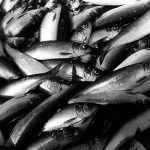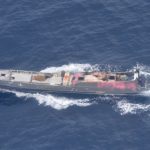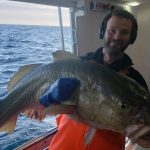The Senegalese Pole and Line fishery for Skipjack, Yellowfin and Bigeye is one of the most selective fisheries in the world, with a negligible 0,4% bycatch, according to the FAO discard database and confirmed by an onsite audit. Only Dolphinfish (Coryphaena) and Little Tunnies (Euthynnus alletteratus) are bycaught and utilized. No IUCN red-listed endangered species are bycaught (the fishery is also Dolphin-Safe, according to the Earth Island Institute) and the fishing method operates on the surface, having no impact on the seabed.
FAO (2007) and ICCAT consider Yellowfin and Bigeye as Fully Exploited in the Atlantic Ocean. Skipjack stock status in the Atlantic, according to FAO, is Moderately to Fully Exploited (“Review of the State of World Marine Fisheries Resources, 2005”). All the origins consequently comply with Friend of the Sea and FAO minimum criteria, requiring the target stock to be not overexploited. The average sizes fit well above the recommended industry minimum sizes.
Frinsa is not new to Friend of the Sea recognition, having already a range of eco-labeled Galician canned mussels out on the shelves in Europe. The company, a market leader for canned products in Europe and supplier of international retail chains, has engaged at sourcing only from Friend of the Sea certified origins.








